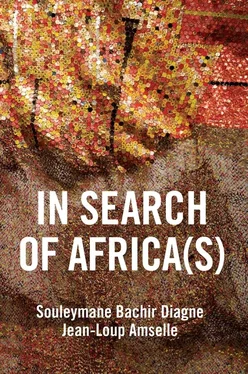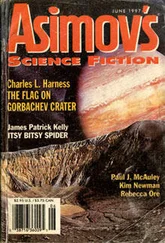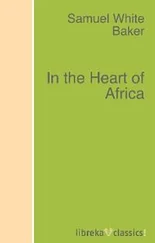This critique of Eurocentrism is admittedly not new: more than a century ago, the German-born American anthropologist Franz Boas was already denouncing the ‘cultural spectacles’ (‘ Kulturbrille ’) of what he called ‘Nordicism’ in reference to the sense of superiority that the White man’s mastery over the forces of nature conferred on him. 13Boas emphasized how the advent of a truly scientific point of view would only be achieved by correcting these forms of conceptual myopia and, in particular, by getting rid of teleological illusions that viewed the White man as an empire within an empire, and his culture as the destination if not the destiny of all other cultures, ordained as these were to follow the path his model traced from barbarism to civilization, from tradition to modernity, from community to individual and from despotism to democracy.
Postcolonial thinking in its turn denounces this Eurocentrism as well as the binary oppositions and purely linear evolutions that it established between ‘the West and the rest’. But decolonial thought goes further insofar as it does not simply plead for ‘epistemological plurality’, that is, the recognition of traditional cosmologies and epistemologies as having the dignity of forms of knowledge every bit as legitimate as Western scientific-technical rationality. It shows that these kinds of knowledge, often local, indigenous or ‘native’, are today highly valued, desired and more and more often appropriated by the Western economic and industrial powers themselves, in the context of a new transformation of global capitalism, moving from the exploitation of ‘natural capital’ (raw materials and the products derived from them) to the exploitation of a ‘human capital’ which now values the knowledge, skills and experiences of diverse social actors.
However, this new age of capitalism, cognitive in some ways since it accords a central role to knowledge (including the most traditional forms of knowledge, suddenly promoted to the rank of the ‘intangible heritage of humanity’), never renounced what Enrique Dussel calls its ‘structural heterogeneity’, namely the consubstantiality and interdependence between modernity and coloniality; instead, it has reprogrammed it according to its new needs and objectives. Thus, biodiversity and traditional knowledge are the new ‘green gold’, part of what is now conceived of as sustainable development, and we are witnessing a new appreciation, in postmodern form, of other types of knowledge, non-scientific, non-rational and non-Western, which had hitherto been excluded from the realm of legitimate knowledge.
But in this new postmodern and postcolonial framework (in the historical sense of the term ‘postcolonial’), there is still a strict hierarchy between dominated South and dominant North, and the transfer of knowledge remains a one-way street, with the pharmaceutical, agri-food and biotechnological industries granting themselves the right to document, to preserve and soon to patent traditional knowledge and genetic heritages for their sole benefit. From this point of view, postmodernity and postcoloniality do not in the least imply the end of modernity and of its colonial substratum; they are, rather, a reorganization and extension of these phenomena: ‘Just as coloniality is the other constituent face of modernity, postcoloniality is the structural counterpart of postmodernity. On this view, postcolonials are the new updated forms of coloniality in the postmodern stage of the history of the West,’ writes the Colombian philosopher Santiago Castro-Gómez. 14Here, he agrees with the critique voiced in 1992 by the Anglo-Ghanaian philosopher Kwame Anthony Appiah, who waxed ironical about postcoloniality, writing: ‘Postcoloniality is the condition of what we might ungenerously call a comprador intelligentsia: a relatively small, Western-style, Western-trained group of writers and thinkers who mediate the trade in cultural commodities of world capitalism at the periphery.’ 15
The reader will indeed note, in the following pages, many convergences between the views of Souleymane Bachir Diagne, those of Jean-Loup Amselle, and decolonial thought. In particular, the two thinkers share with decolonial thought a scathing criticism of Eurocentrism and its erroneous identification with the universal. They also declare themselves to be sceptical about so-called ‘postcolonial breaks’, when these breaks merely invert the stigmas or values associated with non-Western worlds and thereby reinstate the usual hierarchies, such as the hegemonic domination of the West. Amselle’s critique of postcolonialism as the ‘new ruse of reason’ ( p. 17), whether this reason be colonial or simply ‘ethnological’ (p. 33); Diagne’s parallel denunciation of ‘epistemological colonialism’ (p. 97); their shared willingness to ‘break with the Cartesian mechanical view that provided the enterprise of transforming “nature” into “natural resources” with its philosophy’ (p. 27); their desire to go back and produce a ‘history of philosophy in Africa’ integrated into the history of philosophy in the Western world and into ‘the history of philosophy in the Islamic world in general’ (p. 98) – all these points of agreement are so many decolonial gestures that mark real convergences between the two thinkers. These convergences are actually even more prominent when we explore their respective oeuvres. For that, we need to conduct a brief overview of their work: this will enable us to put the following dialogues into perspective, to draw the line of convergence where two parallel and distinct itineraries could finally meet.
Souleymane Bachir Diagne: a philosophy of translation
One need merely glance at the bibliography of the Senegalese philosopher Souleymane Bachir Diagne to discover that he is the author of an oeuvre as demanding as it is disparate, since it has three distinct aspects. First of all, it includes works on various European thinkers (George Boole, Henri Bergson), such as studies in critical epistemology on the type of thinking and logic inherent in mathematics, especially algebra ( Boole, 1815–1864 ), 16followed by an edition with commentary of Boole’s Laws of Thought . 17Then come books devoted to philosophical practices in the Islam world: Islam and Open Society 18and Open to Reason. 19Finally there are the works on philosophical practices in Africa, such as African Art as Philosophy 20and, more recently, The Ink of the Scholars. 21
Diagne is clearly working at the crossroads where different disciplines and different worlds meet, and he embodies a form of transcultural thought that straddles and ceaselessly interrelates continents and eras. When you look more closely, his work appears de facto driven by two imperatives: on the one hand, it strives to be rooted in ‘specific’ thought traditions (algebraic logic, the Muslim world, the African world), and, on the other hand, it aims to bring these traditions into dialogue with one another.
Whenever he talks about Boole, Diagne reminds us, following Descartes, for example, that algebra came to Europeans via the mediation of the Arab world, so we need to constantly bear in mind the existence of other traditions of thought that make similar demands on rationality. All things being equal, and as if in a spirit of symmetry, Diagne stresses that the act of philosophizing as it developed in the Muslim cultural world itself came largely from the thinkers of ancient Greece with whom Arab and Persian thinkers entered into dialogue by translating their works. This dialogue was pursued in other Muslim areas: the Indian thinker Muhammad Iqbal, for instance, engaged in a veritable philosophical conversation with the works of European philosophers such as Friedrich Nietzsche and Henri Bergson.
Читать дальше












